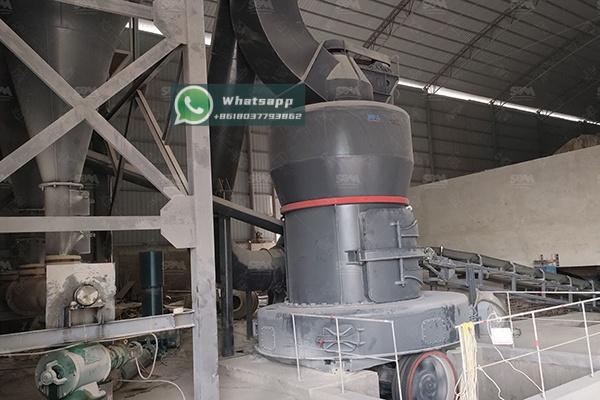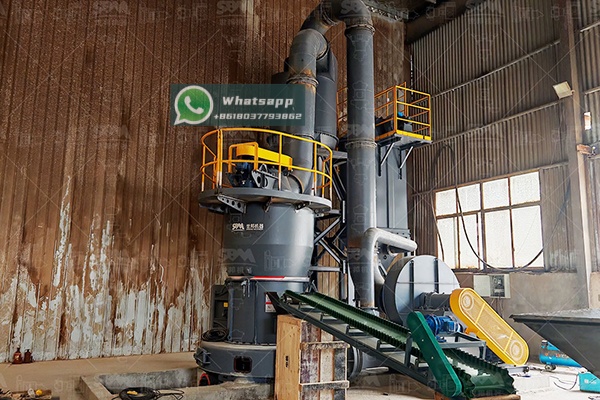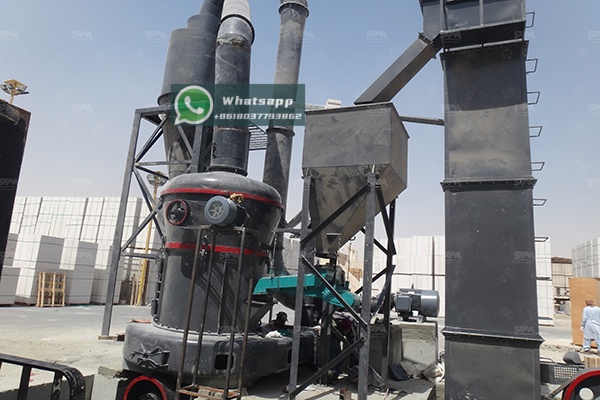The production of high-quality animal calcium supplements requires precise grinding technology to transform raw limestone into fine, bioavailable powder. Limestone, primarily composed of calcium carbonate (CaCO3), serves as an essential mineral supplement in animal feed to support bone development, eggshell formation in poultry, and overall metabolic functions. The grinding process significantly impacts the product’s purity, particle size distribution, and ultimately, its nutritional efficacy.

Shanghai Zenith Machinery Co., Ltd., an excellent manufacturer of ore grinding equipment in China, has made significant achievements in the field of ultra-fine powder grinding. With specialization in research, development, and production of industrial powder grinding equipment, Zenith offers advanced solutions specifically tailored for processing limestone into high-grade calcium supplements.
Particle size distribution directly influences the bioavailability of calcium supplements in animal digestive systems. Finer particles with uniform size distribution ensure better mixing with other feed components and improved absorption rates. Research indicates that particles ranging from 150 to 500 microns offer optimal bioavailability for most livestock, while ultra-fine particles below 45 microns are particularly beneficial for young animals and poultry.
The grinding process must achieve consistent particle size while maintaining the chemical integrity of calcium carbonate. Over-grinding can generate excessive heat, potentially altering the crystalline structure of limestone, while under-grinding results in poor bioavailability. This delicate balance requires precision grinding equipment capable of controlled particle size reduction.
Raymond Mill technology has evolved significantly since its invention, with modern versions offering enhanced efficiency, precision, and environmental compatibility. The working principle involves grinding rollers applying centrifugal force to the grinding ring, crushing the material between them. The crushed powder is then blown up by the air stream and classified by the analyzer, with oversize particles returning for regrinding while properly sized particles are collected.

For limestone processing specifically, Raymond Mills offer several advantages:
Shanghai Zenith Machinery offers advanced Raymond Mill models specifically engineered for limestone grinding applications. Among their product lineup, the YGM4121 Raymond Mill stands out as an ideal solution for medium to large-scale calcium supplement production facilities.
| Parameter | Specification |
|---|---|
| Model | YGM4121 |
| Roller Quantity | 5 pcs |
| Max. Feed Size | 30 mm |
| Discharging Size | 1.6-0.045 mm |
| Capacity | 5-11 t/h |
| Main Motor Power | 132 kW |
The YGM4121 model features five grinding rollers that provide increased grinding surface area and improved efficiency. With a maximum feed size of 30mm, it can process quarried limestone directly after primary crushing, streamlining the production process. The discharge size range of 1.6-0.045mm (approximately 20-325 mesh) covers the optimal particle size spectrum for animal calcium supplements.
While Raymond Mills serve as excellent general-purpose solutions for limestone grinding, specific applications may benefit from alternative technologies. For facilities requiring ultra-fine grinding capabilities or processing limestone with higher moisture content, Zenith offers complementary solutions.
For producers targeting the premium supplement market requiring ultra-fine calcium powder (325-2500 mesh), the XZM Ultrafine Grinding Mill provides superior performance. This equipment is particularly valuable for creating specialized supplements for young animals with developing digestive systems that benefit from extremely fine particle sizes.
| Parameter | XZM221 | XZM268 |
|---|---|---|
| Working Diameter | Φ800 mm | Φ1680 mm |
| Max Feed Size | ≤20 mm | ≤20 mm |
| Final Size | 325-2500 mesh | 325-2500 mesh |
| Output | 500-4500 kg/h | 5000-25000 kg/h |
| Main Motor Power | 75 kW | 315 kW |
Consistent product quality is paramount in animal nutrition. Zenith grinding mills incorporate advanced control systems that maintain consistent particle size distribution throughout production cycles. The closed-circuit grinding system with efficient classifiers ensures that the final product meets strict specifications batch after batch.
Key quality parameters monitored during limestone grinding for calcium supplements include:

Modern grinding equipment must address both economic and environmental concerns. Zenith Raymond Mills incorporate several energy-saving features including:
The YGM4121 Raymond Mill specifically demonstrates 20-30% energy savings compared to conventional grinding systems of similar capacity. These efficiency improvements directly translate to reduced production costs and lower carbon footprint per ton of calcium supplement produced.
Successful implementation of Raymond Mill technology requires attention to operational parameters and maintenance protocols. Key considerations for limestone grinding applications include:
Zenith equipment includes remote monitoring capabilities and predictive maintenance features that help operators maximize equipment availability and minimize unexpected downtime. The modular design of critical components further simplifies maintenance procedures and reduces repair time.
A major animal nutrition company in Southeast Asia recently upgraded their calcium supplement production line with Zenith’s YGM4121 Raymond Mill. The implementation resulted in:
The success of this installation demonstrates the practical benefits of modern Raymond Mill technology in animal nutrition applications.
The animal nutrition industry continues to evolve, with several trends influencing grinding technology requirements:
Shanghai Zenith Machinery continues to innovate in response to these trends, developing grinding solutions that address the evolving needs of the animal nutrition industry while maintaining the reliability and efficiency that customers expect.
The selection of appropriate grinding equipment is critical for successful production of animal calcium supplements from limestone. Raymond Mill technology, particularly advanced models like Zenith’s YGM4121, offers an optimal balance of particle control, production efficiency, and operational economy. For specialized applications requiring ultra-fine grinding, the XZM series provides additional capabilities while maintaining the reliability expected in continuous production environments.
As the animal nutrition industry continues to advance, partnerships with technology providers like Shanghai Zenith Machinery ensure that producers have access to grinding solutions that meet both current requirements and future challenges. Through continued innovation and customer-focused engineering, Zenith remains at the forefront of grinding technology for the animal nutrition sector.